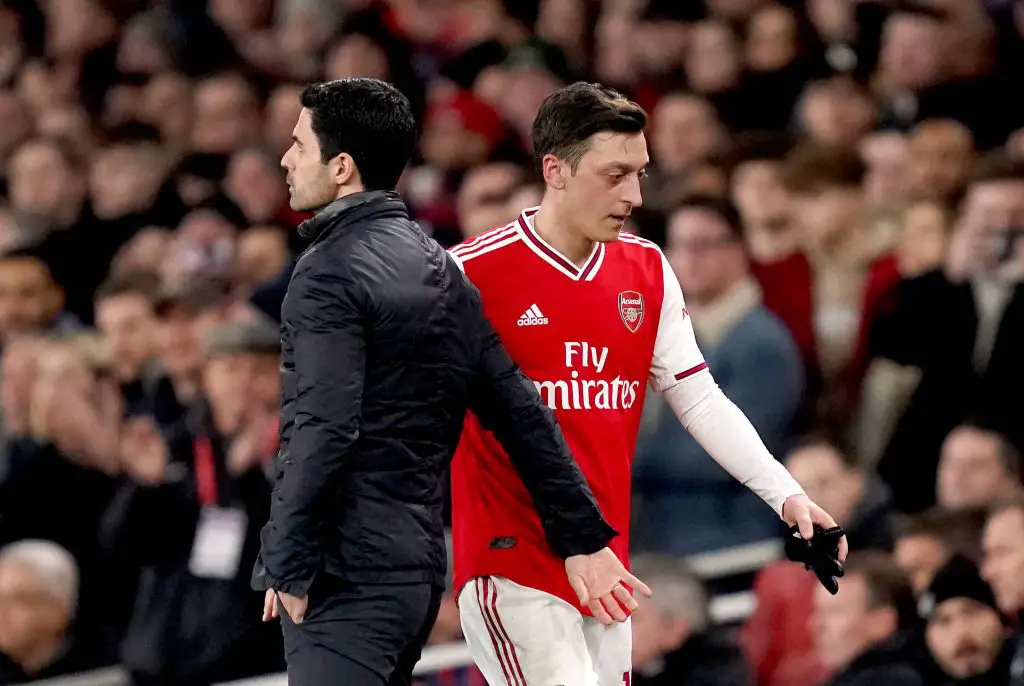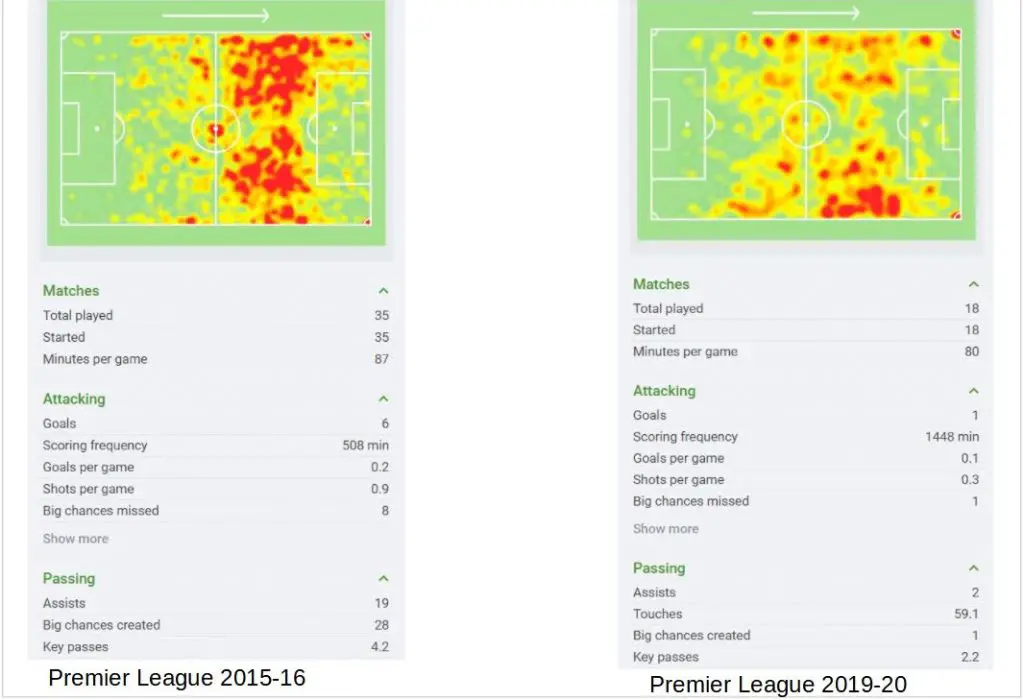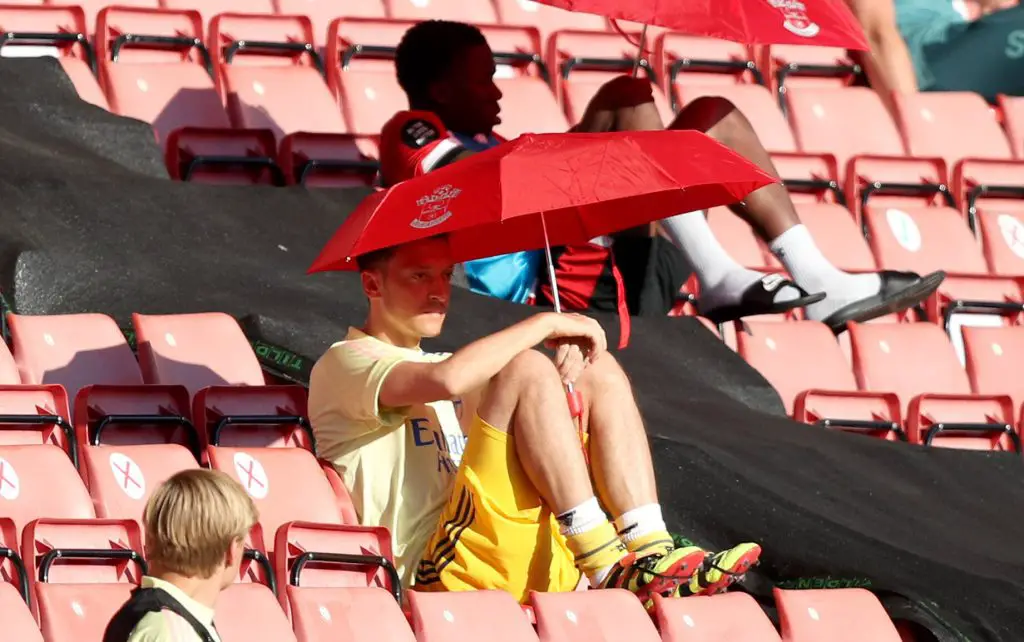How will Mesut Ozil be remembered by Arsenal
As Sky Sports can confirm, Mesut Ozil is in quarantine ahead of his move to Fenerbahce, thus ending his seven and half year stay at Arsenal. The controversial playmaker calls time on a very mixed spell at London and after months of speculation, he is moving to Turkish giants Fenerbahce.
Once seen as the world’s best playmaker, the German has spent close to a year without kicking a football. He last played for Arsenal on 7th March 2020 before the COVID enforced break. Since then, Mikel Arteta has refused to use him, despite the player bagging a staggering £350k per week. Then how did it all come to this?
A comparison of pre and post 2018
There’s a reason for choosing 2018 as the marker to split Ozil’s time at the club. It was after his new bumper contract in 2018 that somewhat marked the decline of Ozil. Whether it was due to the contract or not is up for debate but it was after 2018 that the German started to underperform.

From the time he joined the club until the end of 2018, He played 196 games for the club across all competitions. During that time, he scored 37 goals and assisted another 71 goals. However, Ozil’s contract was set to be out in 2018 and Arsenal were under pressure to retain him. They eventually gave in and offered him a lucrative 3-year deal.
That would prove to hang like an albatross around the club’s neck for a good three years. It’s not as if Ozil’s form declined right after the new contract. Signs were there from 2017 that his output had gone down.
A comparison of Ozil’s best and worst seasons
Ozil enjoyed his best season at the club in 2015/16, scoring 6 and assisting 19 in 35 league games. He equalled the assists record of Thierry Henry. The record was eventually matched last season by De Bruyne (h/t ESPN).
A stark contrast was the 2019/20 season. Ozil went on to feature just 18 times in the league, his lowest ever tally since joining the club. He played no part after the COVID enforced break in the latter half of the season. In those few appearances, he scored once and assisted twice.
Below are his heatmaps and stats from the aforementioned two seasons.

It is clear how his influence has waned from that season. In 2015, he was affecting the game mostly from central areas, while also drifting out to the wider areas. One needs to remember that Arsenal did not have the likes of Aubameyang or Lacazette back then. However, as last season’s heat map showed, he was often shunted to the wider areas and even in the limited games he got, he couldn’t affect proceedings in the same way.
Ozil has always been a divisive figure in European football
Mesut Ozil is what you call a pure No.10. An exclusive playmaker whose only job lies in the final third. However, as football and tactics have developed over the last decade, the use of a pure No.10 is slowly fading. Nowadays, every player in the side has to do multiple functions.

Forwards have to press the opposition, full-backs have to attack as well as defend, defenders and goalkeepers have to be adept at passing. That has led to the demise of players like Ozil. Throughout his career, he was never known to be the most hardworking player.
Despite that, Ozil was the best at what he did – affect proceedings in the final third. The problem was that Arsenal lacked a good defensive midfielder before the arrival of Thomas Partey. This meant that Ozil was required to do his share of defensive duties. Something he clearly wasn’t good at.
Fans and pundits were quick to label Ozil as lazy or deemed him to not put in the effort. Yet, a section always saw Ozil for his ability in the opposition half.
Read More
- Why Neto would be a good backup goalkeeper for Arsenal
- Why Arsenal will be making a mistake by offloading Alex Runarsson
What legacy does Ozil leave at Arsenal?
There’s a popular quote that epitomises Mesut Ozil’s time in London. You either die a hero or live long enough to see yourself become the villain. But it’s far more difficult than it seems to put any of those labels on Ozil.

Quite how? His early seasons at the club show him as a hero. His last two seasons labels him as a villain. Football is a fast-paced game and players are the biggest and the most affected components of that. No one remembers the player who had a great season a year back. Everybody raves about the player who scored a hattrick in the last game.
Such is the fickle nature of modern football. Mesut Ozil was a majestic player in the era of functional and basic players. He was arguably the best at what he did. Ozil feels like an oddity in the modern game, where everyone is doing everything.

